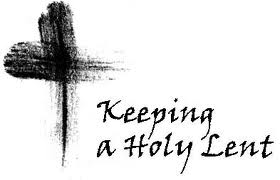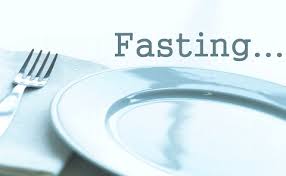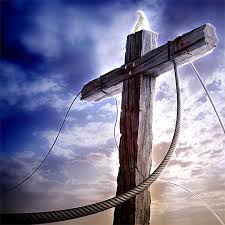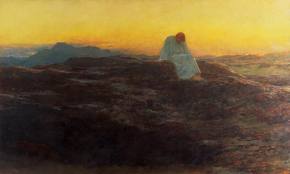Readings for Friday 4 April 2014
Wis 2:1, 12-22. Ps 33:16, 18, 19-21, 23, R/ v 19. Jn 7:1-2, 10, 25-30. www.catholicbishops.ie/readings.
Pope Francis’ message for Lent 2014
“He became poor, so that by his poverty you might become rich (cf. 2 Cor 8:9)”
“In imitation of our Master, we Christians are called to confront the poverty of our brothers and sisters, to touch it, to make it our own and to take practical steps to alleviate it. Destitution is not the same as poverty: destitution is poverty without faith, without support, without hope. There are three types of destitution: material, moral and spiritual. Material destitution is what is normally called poverty, and affects those living in conditions opposed to human dignity: those who lack basic rights and needs such as food, water, hygiene, work and the opportunity to develop and grow culturally. In response to this destitution, the Church offers her help, her diakonia, in meeting these needs and binding these wounds which disfigure the face of humanity. In the poor and outcast we see Christ’s face; by loving and helping the poor, we love and serve Christ. Our efforts are also directed to ending violations of human dignity, discrimination and abuse in the world, for these are so often the cause of destitution. When power, luxury and money become idols, they take priority over the need for a fair distribution of wealth. Our consciences thus need to be converted to justice, equality, simplicity and sharing.”
To read the full text of Pope Francis’ message for Lent 2014 please click here
Pope Francis on Twitter
“May we never get used to the poverty and decay around us. A Christian must act.”
Follow Pope Francis on Twitter @Pontifex.
Friday Penance During Lent
Penance arises from the Lord’s call to conversion and repentance and is an essential part of all genuine Christian living:
- in memory of the passion and death of the Lord
- as a sharing in Christ’s suffering
- as an expression of inner conversion
- as a form of reparation for sin
Declaring some days throughout the year as days of fast and abstinence (Ash Wednesday and Good Friday) is meant to intensify penances of the Christian. Lent is the traditional season for renewal and penance but Catholics also observe each Friday of the year as days of penance. The link between Friday and penance is extremely ancient and is even reflected in the Irish word for Friday – An Aoine (the fast).”
Some suggestions on observing Friday Penance during Lent are:
(i) Make a special effort at family prayer
(ii) Make the Stations of the Cross
(iii) Do something to help the poor, sick or lonely
(iv) Make a special effort to avail of the Sacrament of Reconciliation
(v) Abstain from meat or some other food.
Stations of the Cross
Click here for the Stations of the Cross with Father Paul Clayton Lea from the Archdiocese of Armagh.
Theme of Trócaire’s Lenten Campaign 2014 – ‘Water’
This year’s Trócaire Lenten campaign is about the global water crisis. There are 1.1 billion people in our world who are living without access to a reliable source of water.
To find out more about Trócaire’s Lenten campaign visit www.trocaire.ie/lent and please bring home a Trócaire box this Lent.
Daily Lenten Prayer
(i) ‘Give me this water so that I may be thirsty.’
We pray for those in our world who thirst for their basic human rights. We ask for courage Lord to play our part in having people’s basic needs met, and their dignity restored.
Sacred Space Online Prayer
Sacred Space invites you to make a ‘Sacred Space’ in your day, praying here and now, as you visit their website, with the help of scripture chosen every day and on-screen guidance. For more information see www.sacredspace.ie
Resources on the Vatican website for Lent 2014
The Vatican is collating all the resources for Lent 2014 on a special link on the home page of www.vatican.va. It includes the catechesis, addresses and homilies of the Holy Father, information on liturgical events and video and other multimedia content. Click here to access it.
The Meaning of Lent
The English word ‘Lent’ comes from the Anglo-Saxon word Lencten, meaning ‘Spring’. In other languages the word comes from the Latin, Quadragesima – a period of 40 days. In the Christian tradition the forty days is understood to refer to a time of intense prayer and preparation; we remember the biblical stories of Noah and the flood of 40 days, the forty years the Israelites spent wandering in the wilderness and Christ’s forty day fast in the desert in preparation for his earthly ministry.







